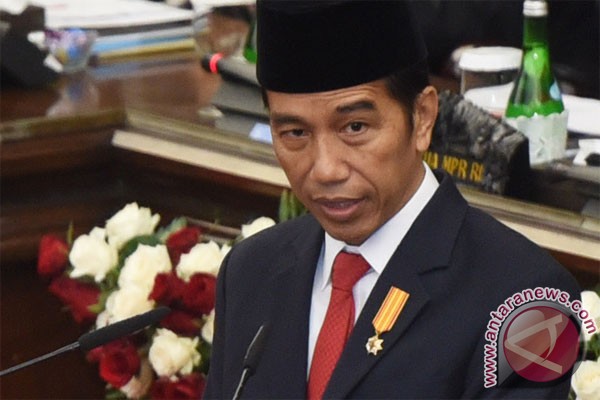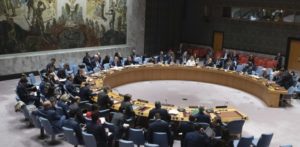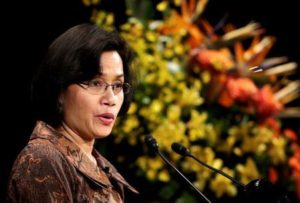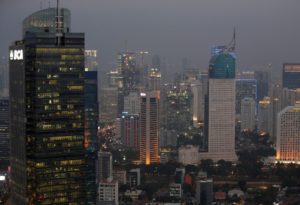Jakarta, 14 Dzulqa’dah 1437/17 August 2016 (MINA) – Indonesia forecasts economy to expand at a faster pace next year with lower deficit at the development budget as the construction of infrastructure projects have kicked off amid lower commodity prices.
Speaking at his annual speech on Tuesday ahead of Independent Day anniversary, President Joko Widodo said that the government expects the economy to accelerate at 5.3 percent in 2017, compared with this year’s expectation of 5.2 percent.
The deficit was projected at 332.8 trillion rupiah (some 25.408 billion U.S. dollars) or 2.41 percent of the GDP next year, narrowing from this year’s revised deficit estimate of 219 trillion rupiah (about 16.7 billion U.S. dollars) or 2.5 percent of the GDP, the president said.
“We will face the prospect of uncertainty of global economy amid slowing down in developing countries and the prospect of developed nations’ (economy) which is below expectation, but (our) economic policy package is expected to be stimulus of infrastructure development,” Xinhua quoted President Widodo as saying at the parliament building.
Also Read: 174 Dead, 79 Missing in Hydrometeorological Disasters in Indonesia
Inflation was targeted at 4 percent and rupiah was assumed at 13,300 per one U.S. dollar, equal with this year’s revised target, Widodo added.
Earlier this month the government revised the rupiah assumption for 2016 from 13,500 per one U.S. dollar, a policy which could lure foreign investment and capital inflows which have been rapid since the endorsement of the country’s tax amnesty law in June.
President Widodo revealed that Indonesia’s oil price was targeted at 45 U.S. dollar per barrel next year with total oil and gas lifting (after sold) projection of 1.91 million barrel oil per day, comprising 780,000 barrel per day for oil and 1.15 barrel oil equivalent gas per day.
Also Read: Power Outage Hits Entire Aceh, Residents Flock to Coffee Shops to Charge Phones
Impact of global economic slowdown
The state revenue was estimated at 1,737.6 trillion rupiah (equal to 132.662 billion U.S. dollars), coming from 1,495.9 trillion rupiah (about 114.21 billion U.S. dollars) from tax and 240.4 trillion rupiah (some 18.354 billion U.S. dollars) from non-tax income, he added.
But the total government spending is expected at 2,070.5 trillion rupiah (about 158,078 billion U.S. dollars), Widodo said.
“On the spending side, it will be spent more on financing productive infrastructures and facilities for connectivity among areas. The government will rise spending on constructions of sea toll road, new roads, toll roads, and railways,” said Widodo.
Also Read: West Sumatra Suspends In-Person Classes, Implements Remote Learning for Three Days
The global economic slowdown and lower commodities’ prices have impacted on shipping activities of Indonesia’s firms, partly slashing the tax revenue from the sector, Finance Minister Sri Mulyani Indrawati has said.
The Southeast Asia’s largest economy has started receiving the influx of capital flows which is expected to rise in coming months, luring investors’ entry at the stock market.
Despite of the prospect of dovish stance of the U.S. Federal Reserve following the latest economic data after the IMF downward revision on the global growth and Brexit, the Indonesian central bank which is supported the effort to spur growth still need to adjust its policy to the government rupiah target range against the greenback.
Indonesia is the world’s largest exporter of palm oil, thermal coal, and the world’s third biggest exporter of rubber and cocoa, as well as home to the world’s second-biggest copper mine.
Also Read: Indonesia-Oman Agree on Visa Waiver for Diplomatic, Service, and Special Passports
President Widodo has unveiled a raft of economic stimulus, including deregulation, incentives and simplification of rules and bureaucracy since September in an effort to attract foreign capitals. (T/R07/R01)
Mi’raj Islamic News Agency (MINA)
Also Read: Indonesian Navy Prepares Three Hospital Ships for Humanitarian Mission in Gaza



































 Mina Indonesia
Mina Indonesia Mina Arabic
Mina Arabic